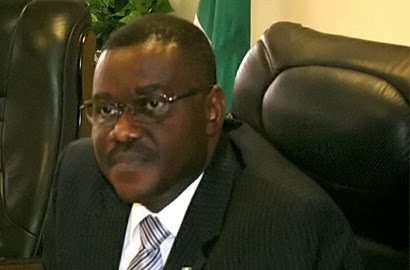Read How Sperm Donation Have Turned A Booming Business – Investigation
 |
| Minister for Health Prof. Onyebuchi Chukwu |
Investigation by National Mirror reveals that many young Nigerian men are now smiling to the banks simply by donating their sperm to In Vitro Fertilisation, IVF, centres in Lagos and other major cities across the country.
According to investigation, a donor realised as much as N325, 000 per month to assist couples who are desperately in need of children.
Investigation revealed that a prospective donor walks into an IVF centre where he is screened and if found suitable for the purpose he is made to donate.
The source added that depending on the bargain, a donor may get between N10,000 and N25,000 per visit until he is able to fill 13 vials which could fetch him between N130,000 to N325,000 in a process that is said to be painless.
A visit to two of the IVF centres, the Bridge Clinic and the Medical Assisted Reproduction Technology, MART, clinic in Lagos revealed that sperm donors are paid different rates, depending on their qualifications and other considerations such as profession, physical features, and family background among others.
“You cannot expect someone that attended Harvard to be paid the same amount as the person that attended a Nigerian university or even an undergraduate,” Prof. Oladapo Ashiru, Medical Director of MART Clinic told National Mirror.
A human embryologist at Bridge Clinic, Dayo Yussuf told National Mirror that donors’ sperm are used exclusively for couples where the man’s ejaculation contains no sperm.
“Here at Bridge Clinic we have a Sperm Bank. A Sperm Bank is a place where sperms donated by people are kept. The sperms people donate are exclusively used for couples where the man does not have any sperm after ejaculation. If after ejaculation, we find out that the man does not have any viable sperm, we will go ahead and carry out a surgical sperm collection and if we find out there is still no sperm, then we advice the couple to go for donated sperm.
“Some men have obstructive azoospermia while others have non obstructive azoospermia. Now in obstructive azoospermia, the testicles are producing sperm, but there is an obstruction along the reproductive tract. In that case, if we go into the testicles surgically and look through the cells there, we will be able to find spermatozoa. But some men have non obstructive azoospermia. This means that there is no production of spermatozoa at all. These types of men will ejaculate semen during sexual intercourse, but there will be no spermatozoa in it. So the solution is for sperm donation”
On the criteria for being a donor, Dayo explains: “We have to do a viral screening first, we prefer men between the ages of 16 and 45, and it’s an anonymous process, very anonymous. We interview them, know why they want to donate, their genotype and medical history. After screening and collection of the sperm, we do not use it immediately until after six months as the donor has to come back for a retest to be sure that he is completely free from infection that might have incubated. If he is okay, he can now become a donor”.
“Before now, we go to universities and talk to young men about it, but now we recruit donors through people that have donated before.”
The procedure was also confirmed by Professor Ashiru who told National Mirror that the token amount given to donors entitles them to an anonymous donation and the right to give up paternity right. This means that the donor agrees to give up his sperm without bothering to know the couples he has donated it to.
However, Nigeria currently does not have any law regulating sperm donation. With the current practice, an individual donor could father as many as 500 children and the possibility of accidental consanguineous marriages could not be ruled out. .
Reproductive laws for sperm donation as documented by an online encyclopedia differed between countries, but there are laid down laws regarding donor payment, number of children to be father with each donor’ sperm, donor anonymity, and allowed recipients.
For instance, sperm donors in Australia, Belgium, Canada, France, Hong Kong, New Zealand, Norway and Spain have no stipulated payment for donation, unlike Denmark were 200-500DKK is the legal amount for sperm donation.
In Sweden it’s 300 SEK and 35 Pounds in United Kingdom to cover expenses. In other places such as U.S, donors are classified under paid and unpaid donors with certain rights or limits, undisclosed paternity terms and disclosed terms are stipulated.
Number of children the donor could father varies between three to 25 depending on places; however, a recent European newspaper publication gave the story of Chris Whitman who fathered 36 children through sperm donation.
In his youth, Chris Whitman often sold his sperm to a fertility clinic because he needed the money. Two years later, he decided to check the records and was astounded to discover how many babies he had fathered, 20 girls and 14 boys more like three football teams.



Comments
Post a Comment